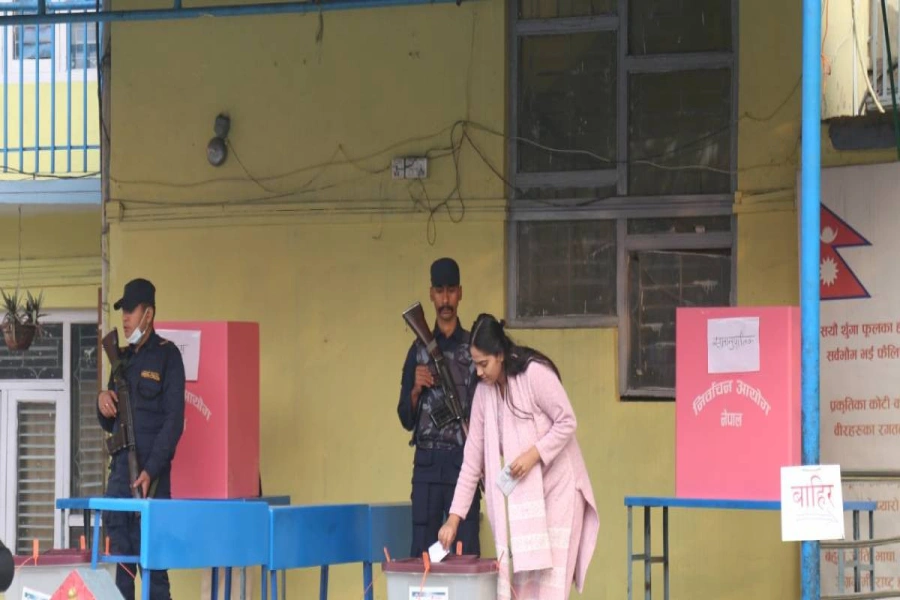Events of last week suggest the blockade is nearing its end. As and when it is over, we will get on with life as if nothing happened. But we must learn a few lessons.
Indian Parliamentarian Mani Shankar Aiyer's speech in the Upper House of Indian Parliament was appreciated by general Nepalis. Prior to that, when the blockade first started having some visible impact on day to day lives, Shashi Tharoor wrote a couple of articles in popular online news outlets.Both Aiyer and Tharoor highlighted that India is losing Nepal to China. It seemed like a great opportunity for opposition leaders to attack Modi on his failed 'foreign policy.' Let us not forget, Aiyer had a made one of most derogatory comments on Modi earlier, referring to his 'Chai-wala' background during the last Indian elections.
Aiyer's speech was good for one simple reason: it was seemingly well researched but even more importantly, it was well articulated. On home front, we have been hearing our politicians put forth their arguments regarding India and how Nepal should tackle the blockade. Unfortunately, there few of them seem to have struck a chord with general public. This is because they never came forward with well-researched and well-articulated arguments. As a result, we are likely to remember Aiyer more than anyone else after the blockade.
There's a growing voice on how the blockade could serve as an opportunity: it has made us pause and reflect where we stand as a nation-states and to confront the frailties we live with.
One more way of turning blockade into opportunity could be by being responsible. We became the victims of Modi's whims but all the irresponsible and on-the-fly comments also added to our woes. We need someone to do an Aiyer right here in Nepal!
Time and time again we saw our government jump into action. And when it comes to market, even though we believe we should let market forces dictate prices, the government does intervene, and rightly so. But by letting the government to interfere in the market, we also acknowledge that there are other hidden forces playing the market.
We have seen the government trying to interfere with the market by setting Dashain bazaars in a few areas of Kathmandu. This festive season was different. The period after the festivity is worse. However, for the government this was the most opportune and appropriate time to monitor and intervene in the market. But it's ironic that perhaps the most powerful of government we have had since becoming a republic, with half a dozen deputy prime ministers, has decided to stand back and do nothing.
At this time of great difficulty the government could have easily announced severest of punishments to those who sell half a cylinder of liquefied gas at double the price of full! With a government ban on transportation of fuel in public vehicles, we had thought that even the little fuel that was still dripping in would dry up. The reality, as one news report put it, "people in Kathmandu are facing a great difficulty but the situation is far from crisis-like."
The head of Parliamentary Committee once informed us about the new policy of his committee. He said that with more electricity, we could decrease our dependency on LPG for cooking. The idea envisaged a situation whereby during half of the year when there is rain and we have surplus electricity, households would use only electric appliances to cook food. He seemed somewhat happy to see his plan taking shape. The majority of household who relied on LPG now have induction cookers in their kitchens. It certainly would be worth looking at the number of induction cookers that made it into Nepali kitchens during the period of blockade! Not until this blockade did we know that, first, we could have a situation of excess supply of electricity and, second, execution of biggest of our plans could be helped by a blockade.
There was perhaps never a time when such uncertainties prevailed. Such times called for words of comfort, and concrete action. We are used to hearing government representatives extol their plans to the skies. And what we have is the new prime minister doing exactly the same as his predecessors, all over again.
If one could borrow from Simon and Garfunkel's, with a twist, in the much-anticipated address to the nation the Prime Minister wanted us to hear him but not to listen too closely. He dished out plans for the future, extending for as long as a decade, but he failed to mention a single 'action' that would address people's immediate needs. Is there anything to learn here? Perhaps there is. There probably must be very few countries where the head of the government can say anything he says and still get away with it.
The blockade made us understand our vulnerability all too well. It could simply block transport through Raxaul and nearly the whole of Nepal would be crippled. As and when that happens, we should designate a separate space, like the weather report, called the 'Tanker Meter' which will mention the number diesel or petrol takers entering Nepal every day. This would do a world of good to people who can draw some comfort just by looking at the amount of fuel tankers that have entered in!
Finally, what we learned about our access to China was amazing. The majority of us grew up thinking the only way up to China is by crossing the friendship bridge at Tatopani. But post-blockade, China suddenly is so close and reachable. If there is genuine political will, we have learned, there is a lot of potential to expand our trade linkages with the Middle Kingdom. But the million dollar question is: Are our political leaders finally ready to throw off India's yoke and embrace the business-minded Chinese?
Hiteshkarki@gmail.com
Interaction must for enhancing distance and classroom learning







































